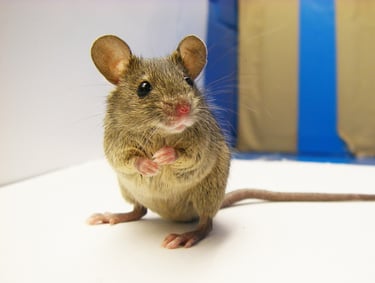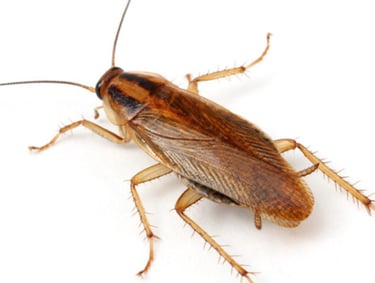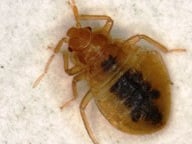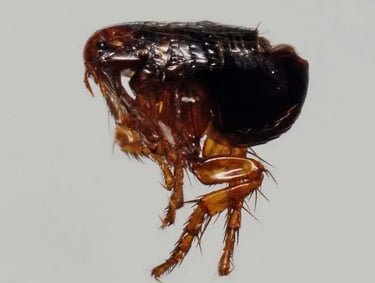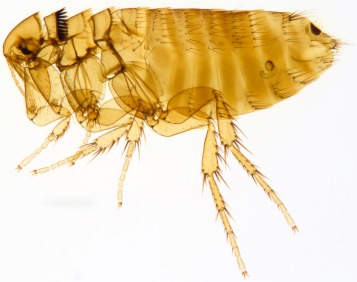
Montreal Pest Guide - Identify Your Pest
We Specialize in Bedbugs, Cockroaches, Fleas, Ticks, Mites and Rodents. Leaders in Pest Management for Homes and Businesses.
Greater Montreal Area - Laval - Longueuil - Laurentians - Gatineau
Rat - Black Rat
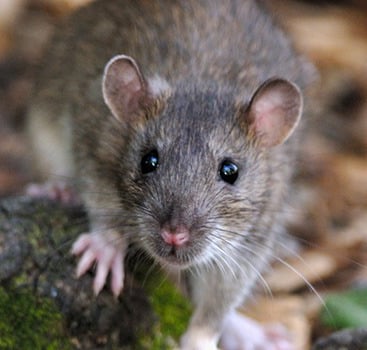

Scientific Name:
Rattus Rattus
Also known as:
Black Rat - Roof Rat - Sewer Rat - House Rat
What Are Rats?
Black rats (Rattus rattus) are medium-sized rodents with long tails, agile climbing skills, and highly adaptive behavior. Unlike their cousin the Norway rat (Rattus norvegicus), black rats are more commonly found in high areas — attics, rooftops, rafters — earning them the name "roof rat." They are nocturnal, extremely cautious, and can survive on very little food or water.
Global Context
Rattus rattus originated in tropical Asia and spread globally via trade ships, becoming one of the world’s most invasive species. Historic outbreaks of plague and disease have been tied to their spread through Europe and beyond.
Quebec Context
In Montreal and surrounding cities, black rats tend to invade older urban buildings, restaurants, grain storage areas, and warehouses. Their climbing ability allows them to enter through roofs, open vents, and wall cavities, particularly during colder months.
How Rats Infest Homes
Climb walls, trees, and pipes to reach roofs and attics
Enter through eaves, soffits, air vents, or gaps around windows
Nest in insulation, attic spaces, stored boxes, or wall voids
Feed on stored food, trash, grains, and pet food
Active mostly at night and extremely wary of new objects (neophobia)
Why Rats Are a Problem
Food contamination: Droppings and urine in pantries and storage areas
Structural damage: Gnawing wood, insulation, and wiring
Fire hazard: Chewed electrical lines
Health risk: Spread of Leptospirosis, Salmonella, Rat-bite fever, and other zoonotic diseases
Parasite carriers: Fleas, lice, mites — which can transmit secondary infections
Reproduction Rate
1 Month: 6–12 pups per litter (begin reproducing at ~3 months old)
6 Months: Up to 80 offspring
1 Year: 100–200+ offspring (7–10 litters/year, depending on conditions)
Parasites & Cross-Infestation Risks
Rat → Flea: Vectors for murine typhus and plague
Rat → Louse: May cause skin irritation and transmit bacteria
Rat → Mite: Can infest pets and humans, causing dermatitis
Rat → Bacteria: Spread through feces and urine (especially Leptospira)
Why Hire a Professional
Rattus DIY rat traps rarely eliminate the colony. Black rats are suspicious of new devices and can avoid detection for weeks. A professional exterminator will: Inspect entry points, nesting zones, and feeding paths. Install tamper-proof bait systems. Seal upper-level gaps and vents. Remove contaminated nesting materials. Recommend long-term rodent-proofing solutions.
Scientific Research:
Beyond zoonosis: The mental heal impactsof rat exposure on inner-city residents.
https://ncceh.ca/sites/default/files/Full%20Document%20EN%20-%20R%20Lam_1.pdf
The rise of the rats: A growing paediatric issue
https://pmc.ncbi.nlm.nih.gov/articles/PMC2865946/
Man Hospitalized with Rare Bacterial Infection After Rat Bite: What You Need to Know
https://medicircle.in/man-hospitalized-with-rare-bacterial-infection-after-rat-bite-what-you-need-to-know

